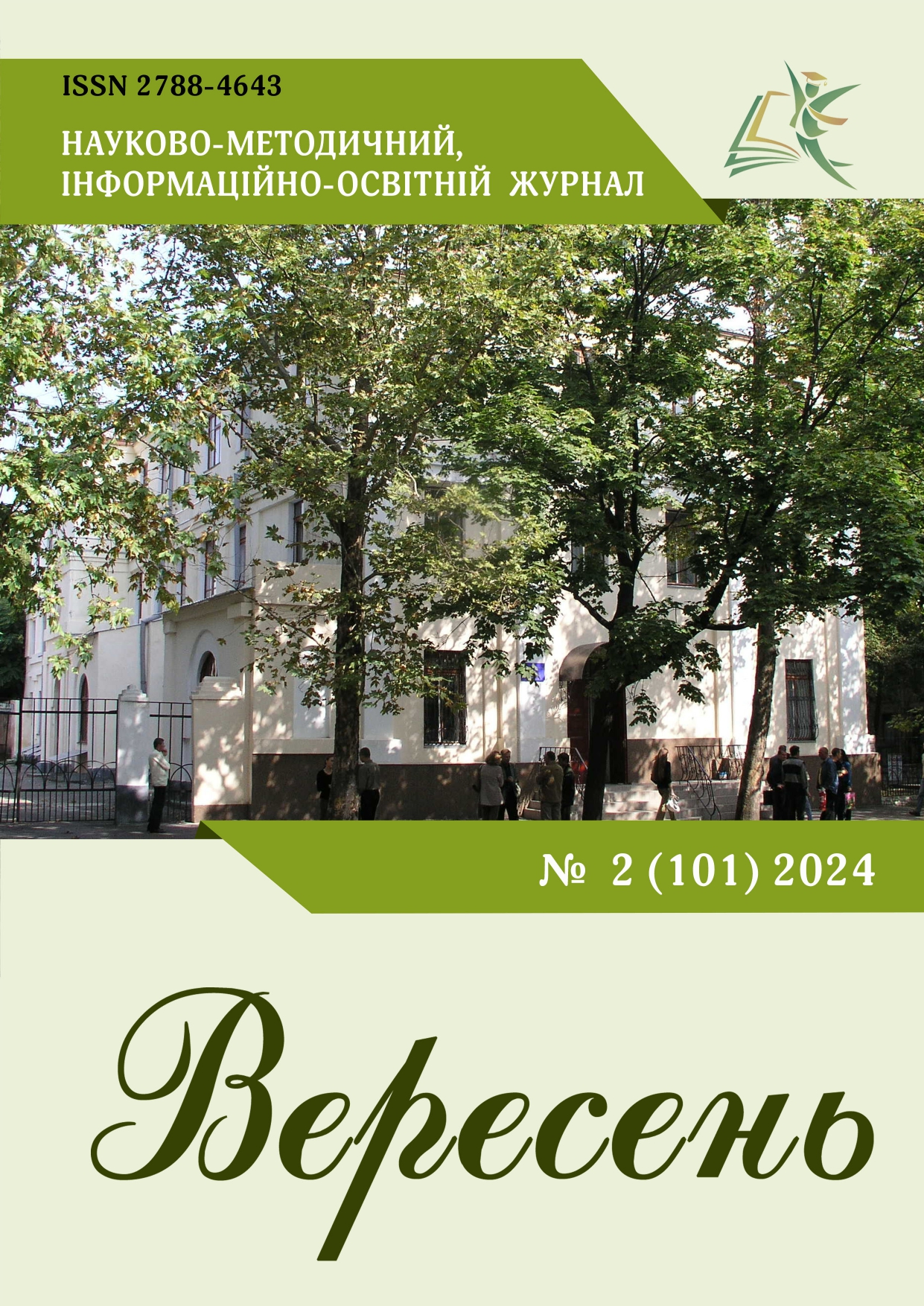THE IMPLEMENTATION PECULIARITIES OF STEM ROBOTIC PROJECTS VIA THE «ARDUINO» CONTROLLERS IN IT CLASSES
DOI:
https://doi.org/10.54662/veresen.2.2024.05Keywords:
Arduino, STEM, robotics, digital technologiesAbstract
The methodological article is dedicated to the implementation of STEM robotic projects based on Arduino controllers in IT lessons in Ukraine’s educational establishments. It has been outlined the peculiarities of the organization process of the implementation of robotics as one of the directions of STEM education. Moreover, it has been delineated the scope of issues that are to be solved during the introduction of robotics into the school curriculum for pupils’ training. The author investigates the conditions of usage for robotics-related projects in IT lessons. The paper defines the methods that encourage creative activity, motivation, and interest in studying among pupils when they make up the STEM-robotics projects in IT classes. It has also been analysed that the controllers are the platforms for creating robots in IT lessons, and the author proposes to opt for «Arduino» as a basis for constructing robotic systems. The article clarifies that according to the conception of the New Ukrainian School, the introduction of STEM education into the educational process has to become an instrument of a significant expansion of the teacher's capabilities as well as the formation of essential technological competences in students. It has been proven that robotics as a unit of STEM education is a universal means for usage in IT classes for children of different ages since it enables revealing the technical inclinations of students and developing them at early stages; moreover, it stimulates the development of communicative and analytical skills as well as the abilities to analyse engineering and programming tasks, find out the problems, and work out effective solutions. For the first time, the author of the paper gives recommendations concerning the choice and use of the instruments for achieving the aims and increasing the effectiveness while making use of the STEM robotics projects during the process of teaching IT via the «Arduino» controllers. The work may be of interest to the teachers of IT, mathematics, natural sciences, and the technologies that help implement the elements of STEM education into educational projects.
References
Balyk, N. R. & Shmyher, H. P. (2017). Pidkhody ta osoblyvosti suchasnoi STEM-osvity [Approaches and features of modern STEM education]. Fizyko-matematychna osvita, 2(12), 26–30 (ukr).
Barna, O. V. & Balyk, N. R. (2017). Vprovadzhennia STEM-osvity u navchalnykh zakladakh: etapy ta modeli [Implementation of STEM education in educational institutions: stages and models]. STEM-osvita ta shliakhy yii vprovadzhennia v navchalno-vykhovnyi protses. Ternopil: TOKIPPO, 3–8 (ukr).
Dotsenko, S. O. (2016). Pryiomy aktyvizatsii tvorchoi diialnosti uchniv v umovakh STEM-osvity [Techniques for activating students' creative activity in the context of STEM education]. Profesiina osvita: metodolohiia, teoriia ta tekhnolohii. Vyp. 4, 32–46 (ukr).
Kramarenko, T. H. & Banada, O. S. (2018). Robototekhnika yak napriamok STEM-osvity ta yii zviazok z matematykoiu [Robotics as a direction of STEM education and its connection with mathematics]. Visnyk Mizhnarodnoho doslidnoho tsentru «Liudyna: mova, kultura, piznannia» (Ed. V. V. Korolskoho). Kryvyi Rih. T. 42, 90–99 (ukr).
Makhrovska, N. A., Pohromska, H. S. & Rohozhynska, E. K. (2023). Rozkryttia kompetentnisnoho potentsialu matematychnoi osvitnoi haluzi v umovakh realizatsii stratehii novoi ukrainskoi shkoly [Disclosure of the competence potential of the mathematical educational field in the context of the implementation of the strategy of the new Ukrainian school]. Veresen, 4(99), 64–74 (ukr).
Morze, N. V., Hladun, M. A. & Dziuba, S. M. (2018). Formuvannia kliuchovykh i predmetnykh kompetentnostei uchniv robototekhnichnymy zasobamy STEM-osvity [Formation of key and subject competencies of students with robotic means of STEM education]. Informatsiini tekhnolohii i zasoby navchannia. Kyiv. Tom 65, 3, 37–52 (ukr).
Morze, N. V., Strutynska, O. V. & Umryk, M. A. (2018). Osvitnia robototekhnika yak perspektyvnyi napriam rozvytku STEM-osvity [Educational robotics as a promising direction for the development of STEM education]. Vidkryte osvitnie e-seredovyshche suchasnoho universytetu. Vyp. 5, 178–187. Retrieved from: https://doi.org/10.28925/2414-0325.2018.5.178187 (ukr).
Patrykeieva, O., Vasylashko, I., Lozova, O. & Horbenko, S. (2017). Uprovadzhennia STEM-osvity u zahalnoosvitnikh ta pozashkilnykh navchalnykh zakladakh: metodychnyi aspekt [Implementation of STEM education in general and extracurricular educational institutions: methodological aspect]. Ridna shkola, 9–10, 90–95 (ukr).
Saienko, M. S. & Lobach, N. V. (2019). Realizatsiia pryntsypiv STEM-osvity na urokakh informatyky u zahalnoosvitnikh zakladakh [Implementation of the principles of STEM education in computer science classes in secondary schools]. Naukovi zapysky. Seriia: Pedahohichni nauky. Vyp. 174, 212–216 (ukr).
Shevchenko, L. S., Umanets, V. O. & Rozputnia, B. M. (2023). Vykorystannia platformy Arduino u pidhotovtsi vchyteliv informatyky za pryntsypamy STEM navchannia [Using the Arduino platform in the training of computer science teachers according to the principles of STEM education]. Open educational e-environment of modern University. Vyp. 15, 130–138. Retrieved from: https://doi.org/10.28925/2414-0325.2023.1510 (ukr).
Strutynska, O. V. (2020). Teoretyko-metodychni zasady pidhotovky maibutnikh uchyteliv informatyky do navchannia osvitnoi robototekhniky v zakladakh serednoi osvity [Theoretical and methodological principles of training future informatics teachers to teach educational robotics in secondary education institutions]. Kyiv (ukr).




